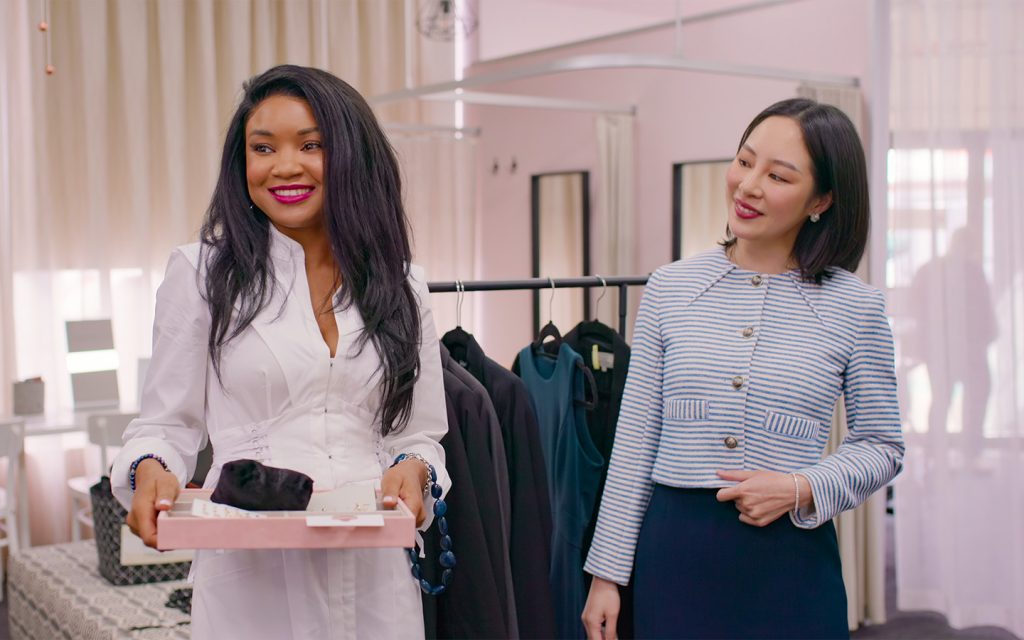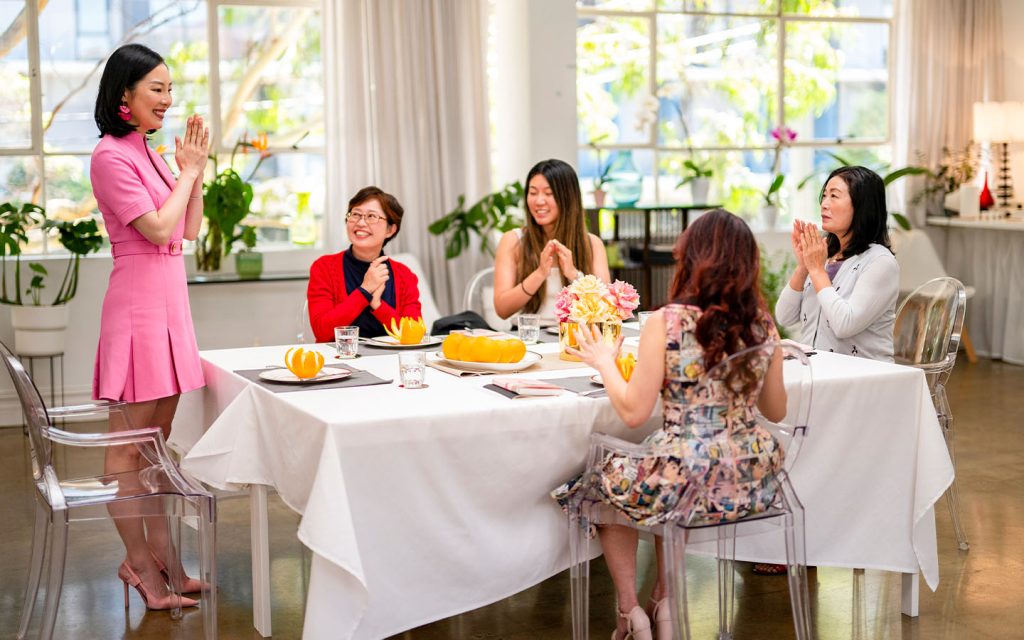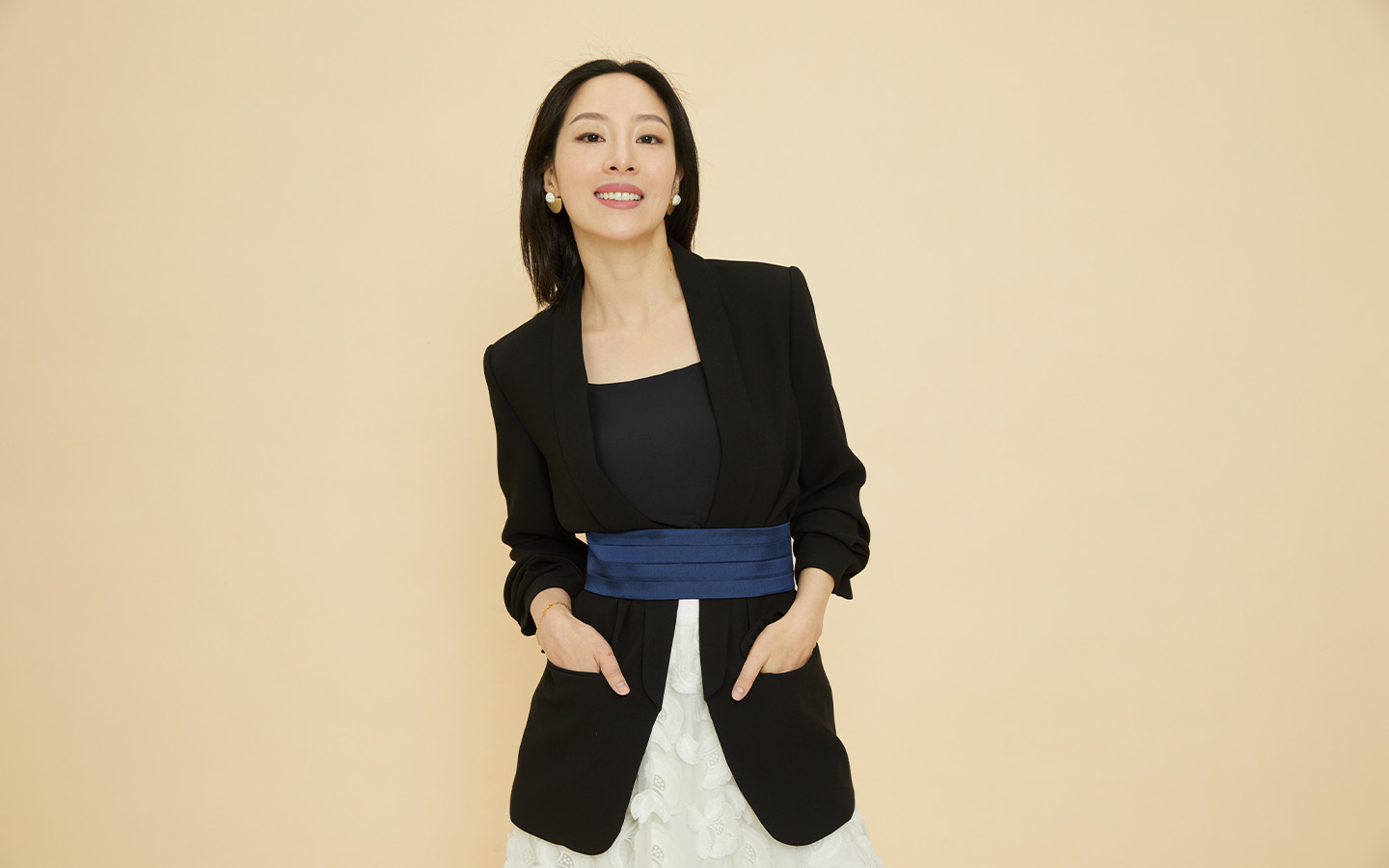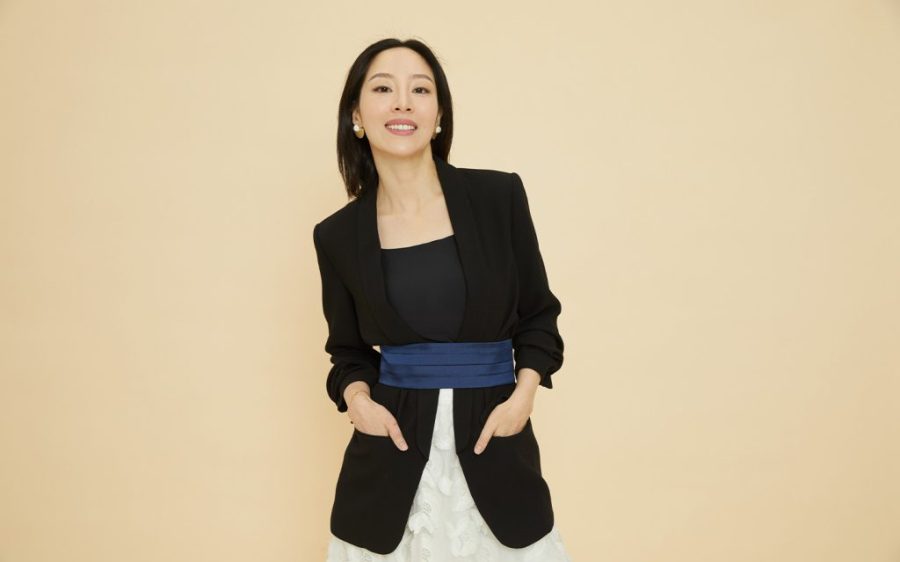Sara Jane Ho is not one to fit stereotypical moulds. “I like to do things that people don’t expect me to do,” the host of the hit Netflix series Mind Your Manners tells Macao News. “I am the etiquette expert who likes to go clubbing. I am the etiquette expert who doesn’t like to wear makeup, unless I have to. I am the etiquette expert who comes out with a product for your vulva,” she laughs, during a Zoom call last week from her place in the eastern city of Hangzhou.
That “product for your vulva,” in case you’re wondering, is Antevorta, a pioneering intimate care line formulated with Chinese herbs and available at the Galeries Lafayette in Macao. But Hong Kong-born Ho is far better known for her Daytime Emmy-nominated etiquette series in which she helps people take on improved new selves through good old fashioned manners. She has also published a book on the topic.
[See more: ‘How much should I give?’ The 8 red envelope rules of Chinese New Year]
What viewers and readers quickly learn is that etiquette is about more than the right way to handle a fork. To Ho, it’s about navigating cultural differences and establishing meaningful relationships, no matter how intimidating the setting they find themselves in. (Although she’ll also teach you how to eat a banana in the presence of royalty, if you really need to know.)
Ho grew up between Papua New Guinea, Hong Kong and the UK, an unconventional upbringing that provided impetus to her interest in cultures, while her late mother – “an incredible hostess” – inspired her love of etiquette. After graduating with an MBA from Harvard Business School in 2012, and quickly identified a business opportunity in the world’s next superpower. “All eyes were on China and Chinese people – and how they were behaving,” she says.
Read on for more.
This interview has been edited for length and clarity.
Why does etiquette matter?
Etiquette is the glue that holds society together. Let’s take a look further back. Why do people shake hands? [In ancient times] it was to show we didn’t have weapons in our hands. Why do people clink glasses when they toast? Back then, they would clink them with such gusto that the wine should be spilling into each other’s glasses. It was to show that the host had not poisoned their guest.
You see a rise in the popularity of etiquette this year. The New York Times and New York Magazine are coming out with etiquette guides, Vogue has brought back an etiquette column called Oh, Behave! A lot of Americans tell me that they feel something is fundamentally broken in their country, there’s an epidemic of rudeness. Every time, when I open the news, I read news of epic violence around the world. Our society is breaking down.
But is etiquette still relevant in the digital era?
Absolutely… With the digital age speeding up, and digital-app dating, everybody is meeting their significant others online now. That creates a whole need for a subchapter of etiquette.
My book is structured across five chapters (Social Life, Dating and Relationships, Family, Career, and Food and Travel) and at the end of every chapter I added a subchapter that focused on digital etiquette.
How would you define modern etiquette?
It’s about putting people around you at ease. That leads to a sense of inclusion and belonging, which is what we seek as human beings.
You have to differentiate etiquette and ethics, I am not trying to teach people ethics. How you want to lead your life, what kind of person you want to be is up to you. What I am giving you through etiquette is a toolkit and skill set for how to get ahead in those five aspects of your life and how to form meaningful relationships.
What is a common misconception around etiquette?
A lot of people think etiquette means they have to be fake and that they can’t say what they really think or do what they want to do, but it’s actually the opposite. Etiquette is enabling, it’s empowering.
When you identify the most important person in a room or a prospective client, etiquette gives you the confidence to approach that person, know how to introduce yourself, open a conversation, and make a good impression in a very short time. It also gives you the sensitivity and awareness of when and how you should end that conversation – you don’t want to be hogging that person because then you’ll leave a bad impression.
Etiquette can also help you set your boundaries and not do something you’re uncomfortable doing, without offending, because it’s all about how you’re delivering your style.

What is the most common etiquette mistake you see?
Not knowing how to introduce people. Oftentimes I’ll go to a party, maybe it’s even someone’s house party, and they have guests coming but they’re not introducing their guests to other people. They’re left kind of standing there, languishing. If the guest is extremely confident they’ll be comfortable introducing themselves to other people, but most people are not.
Every time you organise any event, whether it’s a business meeting or a house party, you’re creating a community. When you think of what people need to feel a sense of community, the first thing is they need to know each other’s names. Ideally, you can draw commonalities between two people because that’ll really get them talking.
Can manners adjust to cultural differences?
It’s very important to follow your host and be sensitive to whatever country you’re in. When you’re new to a culture you should be, what I like to call, in the field, which is the anthropological term for observation.
All of us move among multiple microcultures everyday: from our family to our friends, different groups of friends, even different departments in an office are different microcultures. It’s about observing and adjusting your behaviour ever so slightly so that, again, people around you feel comfortable – which makes you feel comfortable around them which goes back to that sense of belonging.

How did the opportunity to do your Netflix series Mind Your Manners series come about?
It kind of fell on my lap. I was already doing a bit of media stuff in China, I already had a show on Beijing television and I really liked bringing cultural views and etiquette to a greater audience, on screen.
In 2018 a production house in Singapore called Beach House Pictures emailed me and said “We think what you’re doing is very interesting, is it okay if we pitch you as an idea to some streaming platforms?” So they pitched me to Netflix and Netflix bought the show. They saw me taking etiquette as the utmost form of wellness, a way to promote genuine and healthy individual growth.
How did the series impact your career?
We were nominated for a Daytime Emmy so I went to the Emmys last year, which was an incredible experience. I’ve always been a very international person but I had spent the decade after graduating from Harvard Business School in 2012 being very China-focused.
The Netflix show gave me the opportunities to open up and find the Western side of myself again. I had come out with a Chinese etiquette book in 2016 but it gave me the opportunity to come out with an English book this year.
The next 10 years are going to be US-focused and it’s very exciting to me to bring what I do now to a global audience. I’ve been doing a lot of book tours and workshops across the US and Southeast Asia. I also taped on the Drew Barrymore Show in New York and I’m working on a couple of things in Los Angeles.
What can people look forward to in your book?
A lot of my readers were able to have immediate takeaways. I’ve put a lot of myself into this book. There are a lot of anecdotes, case studies, my successes but also my failures and what I learned from them. It’s fun, practical and honest. I discuss everything frankly. It’s me bringing my East-meets-West perspective to living your best life.






